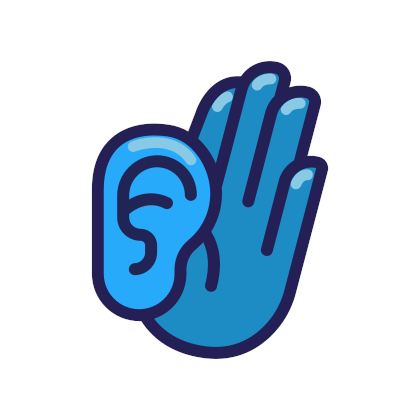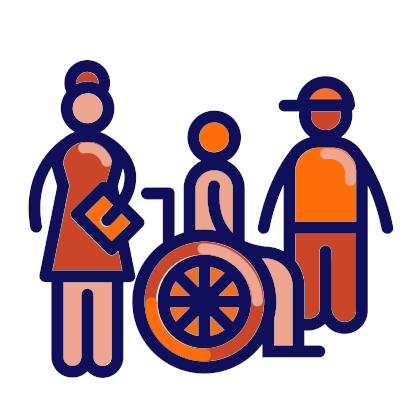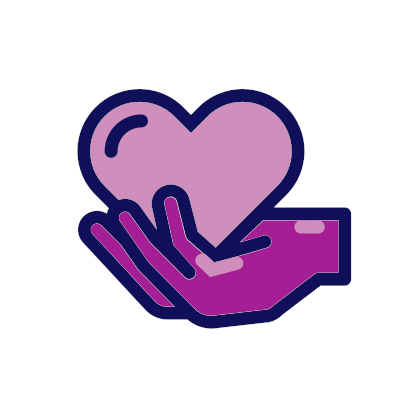Addressing controversial issues

However, being able to discuss sensitive and controversial issues in a respectful way is a vital skill in a democratic culture.
Schools must be places where students feel safe to engage in debates with people who have different opinions. Through the careful management of discussions on controversial issues, schools can promote freedom of expression, as well as inclusion, tolerance, and human rights and prevent, or counter, the use of hate speech by students.
To achieve this, a school action plan on managing controversial issues – which provides staff training – should be adopted as a priority.
Facts & Figures
71% of teachers and school leaders surveyed agreed that it is very important that all students in their school express their views openly, even when their views might be controversial.[1]
In response to the question, ‘How valuable is the study of the Holocaust for primary children?’ 88% of teachers viewed Holocaust teaching to be either ‘worthwhile’ or ‘very valuable’ to the primary pupil, although only 48% had actually taught it.[2]
What are controversial issues?
Controversial issues are issues which arouse strong feelings and divide communities.
Issues like these can arise anywhere at any time. They vary from the local to the global – from minarets to climate change. They also vary from place to place, e.g., gay marriage is relatively uncontentious in some countries, but highly controversial in others. Some are long-standing controversies, e.g., the ‘Troubles’ in Northern Ireland, the Israel-Palestine conflict and the ‘Kurdish issue’ in Turkey; while others are more recent, e.g., refugees, violent extremism and transgender issues.
What all these issues have in common is that they are complex, not easily settled by appeal to evidence alone and highly emotive – so much so that people often have difficulty discussing them rationally.
Why is it important to address controversial issues at school?
While it might be tempting for schools to try to shy away from issues like these, this is neither beneficial nor practical.
Discussing controversial issues helps students with different backgrounds and lifestyles to learn to live and work together peacefully and respectfully. It encourages them to listen to each other and talk through their differences sensitively. It also challenges them to think critically about their own beliefs and values and gives them confidence and skills to express these publicly.
Talking through difficult issues together develops a number of important democratic competences, e.g., openness to other cultures and beliefs, analytical and critical thinking skills, flexibility and adaptability, and tolerance of ambiguity - all of which lie at the heart of the Council of Europe Reference Framework of Competences for Democratic Culture.
Handled well, it breaks down barriers and helps to defuse social tension between opposing groups, both in school and the wider community.
Exploring controversial issues has educational as well as personal and social benefits. Issues like these help to define some of the major social, political, economic and moral fault-lines in contemporary life and underpin academic learning in many school subjects.
The strongest argument for addressing controversial issues explicitly, however, is that, in practice, they simply cannot be avoided. If teachers do not raise these issues, their students will.
Through training in the teaching of controversial issues, I have found the courage to discuss openly with my students issues I thought I would never be able to do, e.g., about sexual abuse and the porn industry.” Teacher, Iceland
What are the challenges?
The biggest challenge is creating a school ethos in which students genuinely feel they can speak openly about their concerns without fear of vilification or ridicule.
Creating such an ethos requires a whole-school approach. It includes among other things:
- teachers having the confidence and skills to handle discussion of difficult issues in the classroom, e.g., knowing how to deal with their own prejudices and biases, protect vulnerable individuals and marginalised groups, present issues even-handedly, cope with a lack of expert knowledge, and handle spontaneous or unexpected questions and remarks constructively;
- school leaders encouraging their staff to take on issues which are controversial and maintaining a consistency of approach across the school, e.g., by providing leadership, professional development, opportunities for team teaching, guidance and support, and risk management;
- parents and local communities feeling assured that the school is on their side, e.g., being confident the school will not misrepresent or try to undermine their views or culture.
How can schools get active?
A good way for schools to begin is by:
- identifying where controversial issues already feature in the school curriculum and discussing how these are currently handled, e.g., evolution, climate change or animal testing in Science;
- considering new opportunities for introducing controversial issues into other school subjects and how they might be incorporated into teaching, e.g., the use and abuse of social statistics in Maths;
- developing ground rules for classroom discussion which guarantee everyone a voice to express their opinion and encourage respect for whoever wishes to speak;
- creating a small support group to help teachers develop techniques for managing discussion of difficult issues, e.g., how to ‘de-personalise’ an issue by using a story or historical parallel, or helping students to consider alternative perspectives by putting them in other people’s shoes;
- liaising with students and parents to ensure specific issues are handled fairly and with appropriate methods;
- introducing more opportunities for discussion in school life and decision-making generally, e.g., in parents’ meetings, staff meetings and pupil parliaments.
[1] ‘Free to speak, Safe to learn – Democratic schools for all’ Survey, First Trends, 2018
[2] Cowan & Maitles, ‘Feature or Footnote? Teachers’ attitudes towards the teaching of the Holocaust in primary schools in Scotland’.
 Resources on Addressing Controversial Issues
Resources on Addressing Controversial Issues
Multimedia
- Crossroads of European Histories - Multiple Outlooks on Five Key Moments in the History of Europe (CD + Book) (2009)
- Education for Democracy and Human Rights in 10 Steps (2017)
- How can schools support students to be active citizens?
- Living in harmony together: the role of schools? (2014)
- Re-Thinking Education Policy For The 21st Century (2014) (Jón Torfi Jónasson)
- Shared histories for a Europe without dividing lines (2014)
- Through the Wild Web Woods – An online Internet safety game for children - Teachers guide (2013)
- What is the Charter on citizenship and human rights education?
Official texts
- Comparative study on blocking, filtering and take-down of illegal internet content (2017)
- Education for change - Change for education
- Eradicating violence against children - Council of Europe actions (2008)
- ETINED - Volume 1: 7th Session of the Prague Forum (2016)
- Freedom(s) - Learning activities for secondary schools on the case law of the European Court of Human Rights (2015)
- Global Education Guidelines. A Handbook for Educators to Understand and implement Global Education (2012)
- Guidelines for educators on combating intolerance and discrimination against Muslims – Addressing Islamophobia through Education (2011)
- Human Rights and Democracy Start with Us - Charter for All: Brochure for children, Guide for educators and a Poster (2014)
- Report of the Intergovernmental Policy Forum: The right of learners to quality and equity in education – the role of language and intercultural skills (2010)
- The Lisbon Recognition Convention at 15: making faire recognition a reality (Council of Europe higher education series No. 19) (2014)
- Thematic factsheets highlighting the European Court of Human Rights relevant case-law on issues relating to media freedom
- What is the Charter on citizenship and human rights education?
Policy documents
- Addressing violence in schools (2016)
- Bullying: Perspectives, Practices and Insights (2017)
- Comparative study on blocking, filtering and take-down of illegal internet content (2017)
- Compasito - manual on human rights education for children (2000)
- Compass - manual for human rights education with young people online resource (2002)
- Competences for democratic culture - Living together as equals in culturally diverse democratic societies (2016) A conceptual model of competences
- Curriculum Development and Review for Democratic Citizenship and Human Rights Education (2015)
- Developing attitudes to recognition: substantial differences in an age of globalisation (Council of Europe higher education series No. 13) (2010)
- Digital citizenship education - Volume 1: Overview and new perspective. Supporting children and young people to participate safely, effectively, critically and responsibly in a world filled with social media and digital technologies. (2017)
- Digital Citizenship Education (DCE) - 10 Domains leaflet
- Education for change - Change for education
- Education for Democracy and Human Rights in 10 Steps (2017)
- Education for democratic citizenship: policies and regulatory frameworks (2003)
- Equal opportunities for all children: Non-discrimination of lesbian, gay, bisexual, transgender and intersex (LGBTI) children and young people (2016)
- Eradicating violence against children - Council of Europe actions (2008)
- ETINED - Volume 1: 7th Session of the Prague Forum (2016)
- ETINED - Volume 2: Ethical principles (2016)
- ETINED - Volume 4: Codes of conduct for teachers in Europe: A background study (2017)
- ETINED - Volume 5: South-East European Project on Policies for Academic Integrity (2018)
- Freedom(s) - Learning activities for secondary schools on the case law of the European Court of Human Rights (2015)
- From linguistic diversity to Plurilingual education: Guide for the development of language education policies in Europe (2007)
- Gender Matters. A manual on addressing gender-based violence affecting young people 2007 (reprint 2013)
- Global Education Guidelines. A Handbook for Educators to Understand and implement Global Education (2012)
- Guide for the development and implementation of curricula for Plurilingual and intercultural education (2016)
- Guidelines for educators on combating intolerance and discrimination against Muslims – Addressing Islamophobia through Education (2011)
- Higher Education and Democratic Culture: Citizenship, Human Rights and Civic Responsibility (Council of Europe higher education series No. 8) (2008)
- History education in Europe. Ten years of co-operation between the Russian Federation and the Council of Europe (2006)
- Human Rights and Democracy in Action Pilot Projects Scheme (2013-2014)
- Intercultural dialogue on Campus (Council of Europe higher education series No. 11) (2009)
- Language support for adult refugees: a Council of Europe toolkit (2017)
- Learning to live together. Council of Europe report on the state of citizenship and human rights education in Europe (2017)
- Living with Controversy - Teaching Controversial Issues Through Education for Democratic Citizenship and Human Rights (EDC/HRE) (2016)
- Managing controversy (2017). A self-reflection tool for school leaders and senior managers
- Multicultural Societies, Pluricultural People and the Project of Intercultural Education (2009)
- Open minds, free minds - No easy prey for counterfeit medicines and similarly dangerous medicines - Psycho-pedagogical concept guide for teachers (2015)
- Plurilingual and intercultural competence (2009)
- Plurilingual and intercultural education as a project (2009)
- Plurilingual and intercultural education as a right (2009)
- Quality history education in the 21st century. Principles and guidelines (2018)
- Re-Thinking Education Policy For The 21st Century (2014) (Jón Torfi Jónasson)
- Reference Framework of Competences for Democratic Culture Volume 1: Context, concepts and model (2018)
- Reference Framework of Competences for Democratic Culture Volume 2: Descriptors (2018)
- Reference Framework of Competences for Democratic Culture Volume 3: Guidance for implementation (2018)
- Report of the Intergovernmental Policy Forum: The right of learners to quality and equity in education – the role of language and intercultural skills (2010)
- Speaking across borders: the role of higher education in furthering intercultural dialogue (Council of Europe higher education series No. 16) (2010)
- Specifying languages’ contribution to intercultural education. Lessons learned from the CEFR (2013)
- Strategic support for decision makers - Policy tool for education for democratic citizenship and human rights (2010)
- Students as suspects? - The challenges of counter-radicalisation policies in education in the Council of Europe member states (2018)
- The linguistic integration of adult migrants: from one country to another, from one language to another (2014)
- The Lisbon Recognition Convention at 15: making faire recognition a reality (Council of Europe higher education series No. 19) (2014)
- The public responsibility for higher education and research. (Council of Europe higher education series No. 2) (2005)
- The university as res publica - Higher education governance, student participation and the university as a site of citizenship (Council of Europe higher education series No. 1) (2004)
- Thematic factsheets highlighting the European Court of Human Rights relevant case-law on issues relating to media freedom
- Volume 3 - Ethical behaviour of all actors in education
- What is citizenship and human rights education? (2015) Leaflet
 Related schools projects
Related schools projects
Address: Sachkhere Municipality Village Sairkhe
Country: Georgia
Project: “Effective collaboration of school departments”
 Working language during the project:
Working language during the project:
- Georgian
- English
 Themes of the Council of Europe project “FREE to SPEAK, SAFE to LEARN - Democratic Schools for All” covered:
Themes of the Council of Europe project “FREE to SPEAK, SAFE to LEARN - Democratic Schools for All” covered:
- Making children’s and students’ voices heard
- Addressing controversial issues
- Improving well-being at school
 Competences from the Reference Framework of Competences for Democratic Culture (CDC) addressed and where / how they were integrated:
Competences from the Reference Framework of Competences for Democratic Culture (CDC) addressed and where / how they were integrated:
- Valuing democracy, justice, fairness, equality and the rule of law
Implemented Activities:
- Peer Observation and feedback
- Exchange of roles - Analytical and critical thinking skills
Implemented Activities:
- Teacher development using group discussion and reflection - Co-operation skills
Implemented Activities:
- Integrated lessons
- Joint creation of resources
- Mutual teaching
- Meetings of school departments
 Target group age range:
Target group age range:
- 5 - 11
- 11 - 15
- 15 - 19
 Level of education:
Level of education:
- Primary education
- Lower secondary education
- Upper secondary education
Short description of the project:
Collaboration is considered an important basis for education and involvement because it develops social and other essential skills, attitudes, values. Collaboration is considered to be the most important professional competence. This is why the focus on teacher competence in education theories does not focus solely on knowledge.
According to the difficulties encountered during the research stages of the project, it was found that teachers did not have adequate experience and practice, departments did not cooperate on common themes, did not share the practice of successful implementation of new strategies, identified common problems, planned / implemented joint interventions. Through collaboration within the project, teachers did not feel alone with existing difficulties, because having a partner allows teachers to take risks, use new methods and experiences. The joint reflection they produce at the end of the month also helps them to solve current problems and continue working. Research has shown that collaboration is a necessary factor in working both to gain self-confidence and to find new ways to solve problems.
 Aims/objectives
Aims/objectives
Continuous professional development of teachers and the formation of a culture of cooperation means the development of sustainable and long-term plans for these processes. Collaborative activities include all aspects of teaching, including: planning, decision-making and problem solving. All lead to the sharing of collective responsibility between teachers and students.
The aim of the project is to introduce the following models of cooperation in everyday life in order to create an effective learning environment:
- Integrated lessons
- Critical Friend Institute
- Constructive feedback
- Swap roles
- Joint creation of teaching resources
- Mutual teaching
- Teacher development using group discussion and reflection
- School department meetings
Our goal as the research team is to study the impact of teacher collaboration on the quality of their teaching and learning activities in detail, the difficulties associated with it, and to find optimal ways to solve problems that will help teachers develop school-based professionalism.
 Expected results/outcomes
Expected results/outcomes
- There are regular department meetings that are specifically dedicated to student learning.
- Self-assessment is done to improve team performance.
- The department conducts and analyses midterm assessments that are consistent with the school curriculum.
- Department members use self-assessment results to improve their own activities.
- The department helps to improve the teaching-learning process by systematically reviewing / improving teachers' pedagogical practices.
 Changes
Changes
School teachers are organized into departments suitable for them.
Department members plan the work process based on students' academic achievement.
Specific time is allotted for regular meetings of chair members.
The terms of the action plan are met, and the results of monitoring and evaluation are taken into account.
There is a focus on critical aspects with the products presented.
The school has a system for timely monitoring of the progress of the departments and their effectiveness.
All departments have developed norms that define the reciprocal duties and principles of the department.
Departments have the appropriate knowledge base, time and support to maximize their effectiveness.
All school representatives share common values and interests. Each teacher cares for students ’high academic performance and self-regulatory discipline. Teachers collaborate regularly to improve teaching and classroom management strategies. They analyse data on each student or common problematic issues, and try to jointly find ways to improve the situation. In a collaborative environment, communication is not just about meetings, it is about the classroom and the work process.
 Challenges you faced
Challenges you faced
There were of course challenges during the project, meeting the deadlines for the tasks to be presented, meeting the time limit during the implementation of the activities, creating additional motivation in terms of involvement.
 Time-frame of the project:
Time-frame of the project:
2019-2020 school years.
 Council of Europe materials on citizenship and human rights education used while preparing or implementing your practice:
Council of Europe materials on citizenship and human rights education used while preparing or implementing your practice:
- Reference Framework of Competences for Democratic Culture
- Living Democracy - manuals for teachers
- Addressing violence in schools through EDC/HRE
- Human Rights and Democracy Start with Us – Charter for All
- Freedom(s) - Learning activities for secondary schools on the case law of the European Court of Human Rights
- How all Teachers Can Support EDC/HRE: A Framework for the Development of Competences
- Multimedia Material (ex. video “Beat Bullying”, series of cartoons “Democracy and Human Rights at School”, video “Corporal punishment at school: how two parents decided to change things”)







